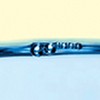 If you are already a user of free chemistry drawing package ACD/ChemSketch but need a little more physical information from your tools than simple structure drawing, then ACD/Labs’ latest freebie might be right up your street. They just released ACD/LogP, which can be used to extract a lipophilicity prediction from your structures with a few mouse clicks.
If you are already a user of free chemistry drawing package ACD/ChemSketch but need a little more physical information from your tools than simple structure drawing, then ACD/Labs’ latest freebie might be right up your street. They just released ACD/LogP, which can be used to extract a lipophilicity prediction from your structures with a few mouse clicks.
For those not in the know, logP, is the octanol-water partition coefficient and is a useful value assessing how a putative drug might partition between cell membranes and cellular fluids. It gives you an indication of potential oral availability in other words. This allows drug designers to find out early on whether they will need to do additional work to make a compound available by mouth.
logP isn’t only about drugs though, agrochemists can use it to help them predict how their experimental compounds might partition between different species. This allows them to see whether a compound might target particular pests in preference to beneficial insects, for example.
This property is also useful to flavour and fragrance scientists who can judge in silico how a new compound might behave when added to food or dabbed on the skin as perfume.
ACD’s physical chemisty products manager Greg Pearl explains that making logP available to the community for free will not only support research but will help students and educators get to grips with this important property. ‘Freeware is especially valuable to educators and students with limited resources,” he says. “For example, during a lecture, an educator can interactively demonstrate how subtle changes to a molecule changes it physical properties – much more compelling than discussing a table of numerical results. It also gives students a chance to use the types of tools they will encounter in the workplace.’
“Through this release of ACD/LogP freeware to scientists worldwide we continue our tradition of advancing chemical research by making critical physicochemical properties available to scientists in an open-access environment,” Pearl adds. “Users will benefit from over a decade of algorithm refinement resulting in accurate and reliable predictions.”
Just for the record, ACD/Labs hosts the Reactive Reports chemistry webzine. There’s more information about logP on their site here